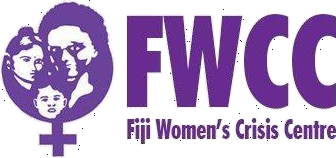Regional Training Program
The Regional Training Program (RTP) has been on-going since its inception in 1995. To date more than 900 women and men from around the Region and Fiji have undergone this training. The Fiji Women’s Crisis Centre (FWCC) as the Secretariat of the Pacific Women’s Network on Violence Against Women (PWNAVAW), will be conducting the training. The network consists of more than 20 organisations addressing the issue of violence against women and children in their diverse communities.
The training comprises a total of 4 weeks and is available to women and men working in the area of violence against women and children – from providing counselling support, carrying out lobbying and advocacy and awareness in the communities on these issues. It is also targeted for people who are currently or have been recently working with women survivors of violence against women (VAW) at crisis centres, family support units, sexual and reproductive health services, legal practitioners, law enforcers, faith-based organisations and government departments. Civil society organisations who are passionate and intend to establish a crisis centre are also encouraged to apply.
This training ensures that participants are empowered with a strong, grounded belief and sensitivity on women’s issues. It will enable them to analyse, strategise and organise more effectively to address and reduce gender-based violence in their home and communities. Through the regional training, participants will have a better understanding of the issues relating to violence against women and how it affects the development of any society.
Participants also discuss and analyse the incidence, severity and trends in GBV in Pacific societies; awareness of the legal issues relating to VAW; CEDAW and UN Declaration on Violence Against women; CRC and dealing with violence (awareness, attitude and behaviour); the linkages between conflicts/wars and women in those areas; VAW as a human rights and development issue; Reproductive health and VAW: Basic Counselling skills for GBV, and the use of the media. Climate Change and its impact on violence against women and girls will also be discussed in this year’s RTP.
Week 4 will build on and include, data collection processes, documentations, setting up of exhibitions, campaigns and running workshops, lobbying and advocacy. Other resource people conducting sessions throughout the training are knowledgeable in their area of work.
Logistical/Administrative Arrangements:
- Funding to attend this training is the sole responsibility of the sending organisation. All funds should be received a month before training begins. You can apply for exceptions.
- FWCC will begin accommodation bookings and other preparations once confirmation of funding is received.
